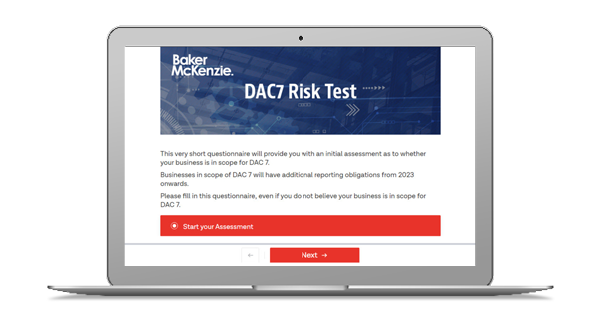On 16 March 2022, the Luxembourg Parliament adopted a draft bill amending the Luxembourg Labor Code to involve staff delegations when introducing or modifying a specific telework scheme at a company level.
Baker McKenzie’s Sanctions Blog published the alert titled “Russia imposes a ban on foreign aircraft flights from 36 states” on 1 March 2022. Read the article via the link here. Please also visit our Sanctions Blog for the most recent updates.
On 9 February 2022, the Luxembourg Parliament adopted the draft bill amending the Luxembourg law of 22 March 2004 on securitization, as amended governing Luxembourg securitization vehicles. The Law aims at modernizing the 2004 Law by increasing the flexibility and legal certainty of the Luxembourg regime while ensuring effective protection for investors.
On 31 January 2022, the Commission de Surveillance du Secteur Financier issued a new Circular CSSF 22/795, to confirm in its capacity as competent authority, that it would apply the ESMA guidelines on marketing communications under Regulation (EU) 2019/1156, published on 2 August 2021. As a result, all Luxembourg investment fund managers that are in the scope of application of this Circular shall duly comply with the Guidelines, applicable from 2 February 2022.
On 22 December 2021, the Commission de Surveillance du Secteur Financier (CSSF) published three circulars to improve the risk-based supervision of the CSSF, both for anti-money laundering and countering the financing of terrorism (AML/CFT) and prudential purposes. Circular 21/788 introduces a mandatory external AML/CFT audit for IFMs while Circular 21/789 and Circular 21/790 introduce new reporting requirements for (i) all authorized IFMs, SIAGs and FIAAGs and (ii) UCITS and UCIs subject to part II of the UCI Law, and SIFs and SICARs respectively.
Considering the cross-border component inherent to most Luxembourg transactions, dealmakers must carefully assess the risks of a merger control review even if the national merger thresholds are not met. To shed more certainty on the applicable procedure and timeline, the local M&A market may opt to insert detailed contractual remedies in the M&A documentation.
In March 2021, the EU approved new reporting rules in a directive known as DAC7. The directive will require the operators of online platforms for the sale of goods and certain services, to collect, verify and share data on their sellers and their transactions concluded on the online platform. EU member states have until 31 December 2022 to implement DAC7 into national law. Certain platform operators will become a reporting platform and will need to start collecting and verifying data points in compliance with the DAC7 reporting requirements. The collected data points must be reported to the tax authorities of the relevant EU member state annually.
The law of 21 July 2021, effective as of 31 July 2021, has implemented the European prudential regime applicable to investment firms authorized under the Markets in Financial Instruments Directive II set out under the Investment Firms Directive and the Investment Firms Regulation into Luxembourg law.
On 15 June 2021, the Commission de Surveillance du Secteur Financier (CSSF) published an updated version of its Q&A on the statuses of PFS-Part II with respect to the granting of loans to the public.
On 13 July 2021, the EU Council of Ministers approved the national recovery and resilience plans (RRPs) of 12 Member States. This means that Austria, Belgium, Denmark, France, Germany, Greece, Italy, Latvia, Luxembourg, Portugal, Slovakia and Spain are now able to tap into the EU recovery and resilience funding. This will allow them to start spending the money on projects and reforms for national economic recovery and resilience, as well as the green transition and digital transformation.


